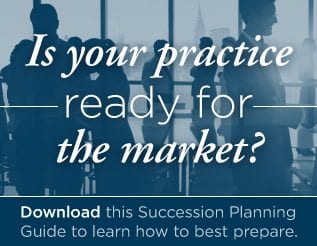I just spoke with an owner who is about 5 years away from exiting an accounting practice who wanted me to find a partner for him. Hopefully I talked him out of that.
Most owners who are nearing an exit would like to slow down and work less. It’s natural to want help and sometimes grooming someone to take over does work out. However, it also very often doesn’t work out…or at least not well. (just look at what some of your clients have done.)
There are some very serious pitfalls to avoid:
Not getting a partnership agreement that properly addresses partner exits.
Making someone your partner is a significant step, one that shouldn’t be taken lightly. If you feel that partnership is the right path for your practice, great care should be given to selecting an attorney who can help structure your partnership agreement. This contract should clearly address exit strategies by any one or a group of partners. Excellent legal advice at this juncture is one of the best investments you’ll ever make. It’s the ONLY time you will have any real leverage to negotiate an exit that is anywhere close to fair market value.
The more partners you have, the more complex it becomes to sell 100% of a CPA practice.
It’s hard enough to get people to agree on where to have lunch, much less agree on sale terms, price, transition, salaries, equity interest, etc. Enough said.
Remember – those Golden handcuffs are attached to you as well.
Many owners rely on co-ownership as a means of retaining employees—and because they see it as a way to get more for less. By making an employee a partner, they are essentially putting the proverbial “Golden Handcuffs” on that person. What these owners tend to overlook is the fact that that same shackled junior will hold the key to those handcuffs when you’re ready to leave. You can avoid this predicament by being careful about who you hire, by paying your employees fairly, and by treating them with respect. Do these things and your staff turnover will be low. Far better to use a generous paycheck as the tether, leaving everyone the freedom to stay or go. If you’re charging clients appropriately, compensating your staff well should not be an issue.
My general recommendation to owners who want to slow down is to step-back and carefully evaluate their practice. Taking on a partner is rarely the right answer. Re-focusing can often free up hours and energy.
FREE DOWNLOAD!
Succession Planning Guide for Accountants.
Start creating your succession plan using the simple strategies found in this guide.





